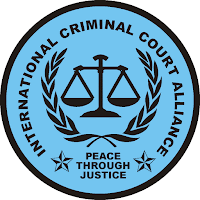Article 69: Evidence
Before testifying, each witness shall, in accordance with the Rules of Procedure and Evidence, give an undertaking as to the truthfulness of the evidence to be given by that witness.
The testimony of a witness at trial shall be given in person, except to the extent provided by the measures set forth in article 68 or in the Rules of Procedure and Evidence. The Court may also permit the giving of viva voce (oral) or recorded testimony of a witness by means of video or audio technology, as well as the introduction of documents or written transcripts, subject to this statue and in accordance with the Rules of Procedure and Evidence. These measures shall no be prejudicial to or inconsistent with the rights of the accused.
The parties may submit evidence relevant to the case, in accordance with article 64. The Court shall have the authority to request the submission of any evidence, taking into account, inter alia, the probative value of the evidence and any prejudice that such evidence may cause to a fair trial or to a fair evaluation of the testimony of a witness, in accordance with the Rules of Procedure and Evidence.
The Court shall respect and observe privileges on confidentiality as provided for in the Rules of Procedure and Evidence.
The Court shall not require proof of facts of common knowledge but may take judicial notice of them.
Evidence obtained means of a violation of this Statute or internationally recognized human rights shall not be admissible if:
The violation substantial doubt on the reliability of the evidence; or
The admission of the evidence would be antithetical to and would seriously damage the integrity of the proceedings.
When deciding on the relevance of admissibility of evidence collected by a State, the Court shall not rule on the application of the State's national law.
The testimony of a witness at trial shall be given in person, except to the extent provided by the measures set forth in article 68 or in the Rules of Procedure and Evidence. The Court may also permit the giving of viva voce (oral) or recorded testimony of a witness by means of video or audio technology, as well as the introduction of documents or written transcripts, subject to this statue and in accordance with the Rules of Procedure and Evidence. These measures shall no be prejudicial to or inconsistent with the rights of the accused.
The parties may submit evidence relevant to the case, in accordance with article 64. The Court shall have the authority to request the submission of any evidence, taking into account, inter alia, the probative value of the evidence and any prejudice that such evidence may cause to a fair trial or to a fair evaluation of the testimony of a witness, in accordance with the Rules of Procedure and Evidence.
The Court shall respect and observe privileges on confidentiality as provided for in the Rules of Procedure and Evidence.
The Court shall not require proof of facts of common knowledge but may take judicial notice of them.
Evidence obtained means of a violation of this Statute or internationally recognized human rights shall not be admissible if:
The violation substantial doubt on the reliability of the evidence; or
The admission of the evidence would be antithetical to and would seriously damage the integrity of the proceedings.
When deciding on the relevance of admissibility of evidence collected by a State, the Court shall not rule on the application of the State's national law.

No comments:
Post a Comment